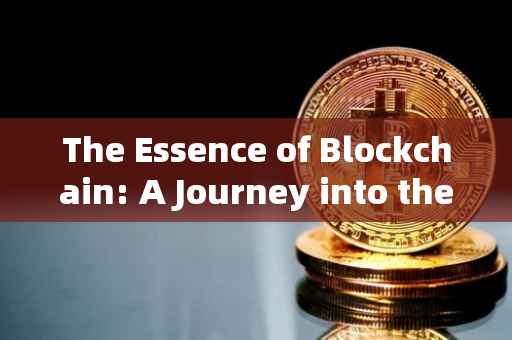In the fast-paced world of technology, blockchain has emerged as a revolutionary concept, revolutionizing the way we think about digital trust and security. As we delve into the intricacies of this innovative technology, it becomes increasingly important to understand its English language counterpart, which serves as the backbone of this global phenomenon.

Blockchain, in English, represents a series of interconnected blocks that store transactional data in a secure and decentralized manner. Each block contains a digital timestamp and is linked to the previous block through cryptographic principles, ensuring the integrity and authenticity of the information. The term 'blockchain' embodies the essence of distributed ledger technology, where every transaction is visible to all participants in the network, yet remains secure and private.
In the English language, blockchain has become a cornerstone term in various industries, from finance to healthcare and supply chain management. Its widespread adoption has led to the emergence of numerous new terms and concepts that are often described in English to ensure clarity and precision.
One such concept is 'smart contracts', which are self-executing contracts that exist on a blockchain network. These contracts facilitate secure transactions between two or more parties without the need for a central authority. In English, 'smart contracts' captures their versatility and the innovative way they revolutionize contract law and digital agreements.
Another important aspect is 'cryptocurrencies', which are digital assets that use encryption techniques to regulate their creation and secure transactions on a blockchain network. Bitcoin, Ethereum, and many other cryptocurrencies are just a few examples of this revolutionary phenomenon. In English, these terms are widely recognized and used to describe this new breed of digital currencies that are revolutionizing the financial industry.
Moreover, as blockchain technology continues to evolve, new terms and concepts such as 'sharding', 'staking', and 'decentralized finance' (DeFi) are becoming increasingly prevalent in English. These terms encapsulate the latest advancements in blockchain technology and its potential to disrupt traditional systems and processes.
The English language has played a pivotal role in shaping the global understanding of blockchain technology. It has become a common language for professionals, developers, and enthusiasts to communicate about this innovative technology. As blockchain continues to transform various industries, its English language counterpart will continue to evolve, adapting to new concepts and terminologies that reflect its growing influence.
In conclusion, blockchain represents a transformative technology that is revolutionizing our understanding of digital trust and security. Its English language counterpart is not just a medium of communication but also a tool for understanding this global phenomenon better. As we move forward in this digital age, it is essential to understand the English language of blockchain to stay ahead in this rapidly evolving technological landscape.





还没有评论,来说两句吧...